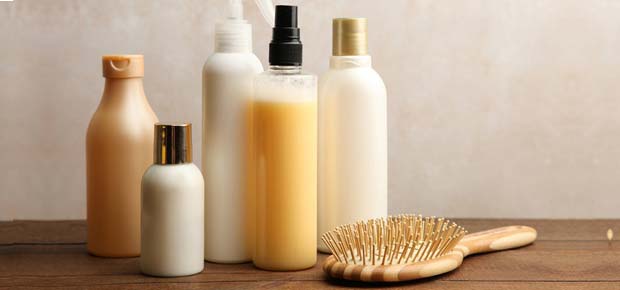Hair care is a term used for the parts of hygiene and cosmetology involving the hair on the human head. Hair care involves care of the hair and scalp skin and the two terms are intertwined as the hair grows from underneath the skin. Hair care may differ for person to person, depending on the hair type and the various processes, which can be applied to hair. All hair are not same, indeed it is an expression of human diversity.
A variety of hair care products are available in the market that can be used to deep clean and infuse proteins and vitamins in hair for shine, growth and health. Hair care products also help reduce thinning, prevent dry and oily hair, repair damage from breakage, frizzing, coloring, sun, chemicals, stress, and overheating. Hair care products can also be used to address problems, such as slow growth and hair loss with the most effective hair vitamins, proteins, follicle stimulators and botanicals. These factors should feed the root and repair system to prevent dry, breaking, splitting and enhance problems that are usually associated with poor nutrition or environmental factors.

Hair care also includes hair cleaning and washing. The scalp skin if not
cleansed regularly may become a breeding ground for bacteria and may result
in scalp disorders. Different other problems that may arise, as a result of
improper hair cleaning is dandruff, head lice, dryness, dirt and impurities
and itching. Head lice are is probably one of the most common hair and scalp
problem across the world.
The different hair care products that are available in the market include -
shampoos, conditioners, hair oils, hair styling gels, and many more. Among
these various products, shampoos and conditioners are the most popular and
widely used hair care products. Thus, the most important hair cleaning
products are -
Shampoos
Shampoos are hair cleaning products that are formulated to remove dirt,
excess oil and dead skin cells from the scalp and hair. Shampoos are made
using different cleansers, known as surfactants. The most common surfactants
in shampoos are Sodium or Ammonium Laureth Sulfate, Sodium or Ammonium
Lauryl Sulfate, and TEA-Lauryl Sulfate. Some shampoos also contain
conditioning agents like humectants, silicone and protein and offer the dual
benefit of cleaning and conditioning. Shampoos stick to the hair until the
next time you wash it. A variety of other ingredients are also added to help
make the product thick and give it a nice scent and pleasing fragrance.
The different types of shampoos available in the industry, include -
Conditioners
Conditioners are hair care products that are formulated to protect hair
from heat and styling damage. Conditioners reduce friction between
individual hairs, moisturize, reduce static and impart shine and nourishment
to the hair. Generally, the longer you leave a conditioner on, the more it
will attach itself to the cuticle. Deep conditioning with heat has found to
be most effective. A variety of hair conditioners are available in the
industry that can be selected on the basis of hair type and the need of an
individual.
Conditioners can be categorized into four types -
Hair Care TipsA variety of hair conditioners are available in the industry that can be selected on the basis of hair type and the need of an individual.

If you have decided to make soap at home, you will need soap making supplies in the form of raw materials, soap making equipment & tools ...
Read More
Someone has rightly said that clothes are not just clothes. They form an integral part of a person's personality and tell a lot about their nature and...
Read MoreCleansing products play an important role in the daily lives of people.
Both soaps and detergents are cleansing products that we frequently use in our
Soap is designed as a product to be used once and then flushed down the drain...